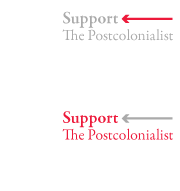"Intersectionality, Class, and (De)Colonial Praxis" (December 2014/January 2015) · Featured · Global Perspectives
Letter from the Editors: “Intersectionality, Class, and (De)Colonial Praxis”
The year 2014 marked twenty-five years since Kimberlé Crenshaw coined the term “intersectionality” to describe how social realities such as “class” or “race” should not be analyzed in isolation, but[...]





